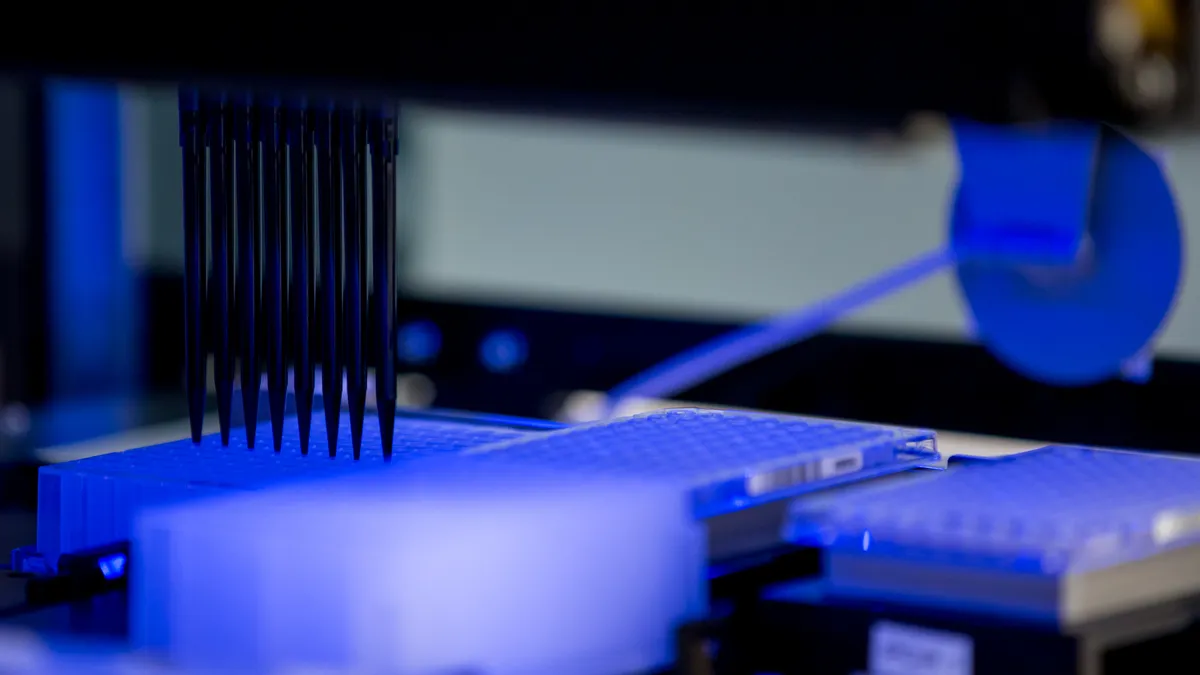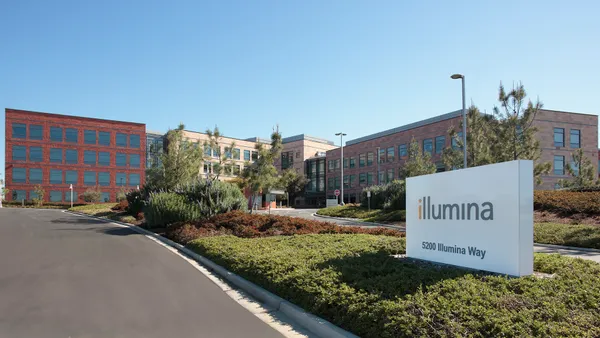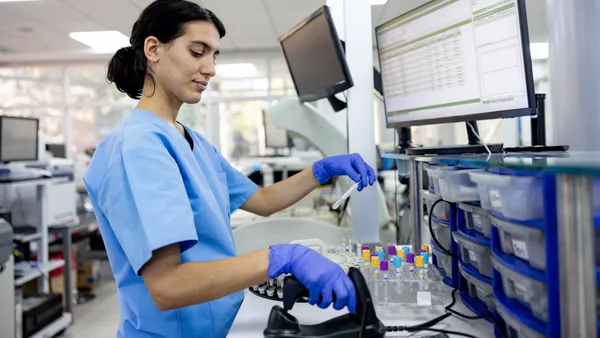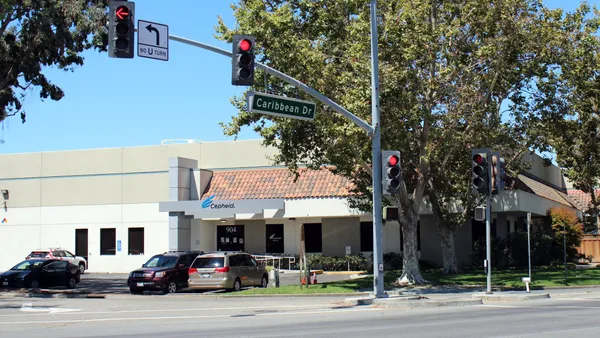Dive Brief:
- Guardant announced Tuesday its second quarter revenue climbed 178% to $54 million from the year before on increased clinical use of its blood tests that provide genomic profiling in cancer patients.
- The report of strong quarterly performance comes a day after the company released study results showing its blood-based Guardant360 test can accurately detect a biomarker for microsatellite instability (MSI) across multiple solid tumor types.
- The precision oncology company also gave an update on progress in the development of its Lunar assay to identify early-stage colorectal cancer patients, saying it remains on track to release a validated version of the test for use in clinical trials by the end of the year.
Dive Insight:
Company executives said the strong pace of adoption of its liquid biopsy tests for advanced stage cancer patients is exceeding its expectations. In the second quarter, clinical volumes grew 77% to 11,875 tests and biopharmaceutical volumes grew 112% to 5,285 tests, they said during a call with investors.
The company estimated that less than 15% of patients receive comprehensive genomic profiling either by tissue or by liquid, and clinical adoption of Guardant360 is only in the mid-single-digits. "This presents a massive opportunity to build and grow this market," CEO Helmy Eltoukhy told analysts.
The company reported a net loss of $11.6 million, or 13 cents a share, in the second quarter, compared to a loss of $21.6 million, or $1.75 a share, in the same period a year ago.
Guardant now expects full year revenue in the range of $180 million to $190 million, representing 99% to 110% growth over 2018. The company's previous full year revenue guidance was $145 million to $150 million.
On Monday, the company released results of a study in Clinical Cancer Research comparing its Guardant360 assay to traditional tissue testing data taken from medical records for detecting the MSI biomarker across multiple solid tumor types. The biomarker is found most frequently in colorectal, endometrial and gastroesophageal cancers. The results for Guardant360 were the same as the standard-of-care tissue test in 98.4% of cases, the company said.
Guardant during the quarter also announced plans to begin enrolling patients in the Eclipse colorectal screening study by the fourth quarter. The observational study is expected to include 10,000 patients. If successful, the assay would allow Guardant to compete with Exact Sciences’ Cologuard stool test for colorectal cancer screening.
Other diagnostics companies with a colorectal cancer focus include Roche, Grail and Freenome.










